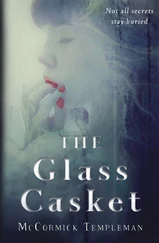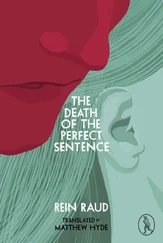“You mean piracy and raiding,” Mrs. Clay said.
“I do. No one is denying,” Shadrack said, “that the conflicts with the other Ages are real. The pirates in the United Indies are a costly distraction, and it is true that raiding parties from the Baldlands are continually tormenting populations at the edges of New Occident—even more so in the Indian Territories. But,” he continued sadly, “it goes the other way, too. Ships sail from Seminole every day under our flag and then, once they’re out on the sea, they lower ours and raise a pirate flag. And raiding parties from New Occident go into the Baldlands as often as they come out of them.” He paused. “That is why the boy you saw on the wharf, Soph, was a captive.”
“You mean he was kidnapped in the Baldlands?”
“Most likely. They would probably claim that they found him in New Occident and that he somehow broke the law, but most certainly he was taken in a raid, and the circus bought him from the raiders as the newest addition to their show.” His voice was bitter.
“That’s despicable.” Sophia was thinking of how calm the boy had seemed and of how he had stepped up to the bars, as if about to speak to her.
“It is.” The Elli side of the family, Shadrack and Minna, were all from Boston. But the Timses came from many different places, and Sophia’s great-grandparents had been slaves; after the rebellion, they helped to found the new state of New Akan in 1810. Their son, Sophia’s grandfather, had moved to Boston to attend the university. “Sophia’s great-grandfather was only seventeen when slavery ended,” Shadrack explained to Mrs. Clay. Then he turned to Sophia. “It must have shaken you to see a boy behind bars like that.”
“This is what I don’t understand,” the housekeeper said. “Surely people in New Occident see that almost everyone here was once from somewhere else—everyone has a foreigner in their past.”
“Yes, but what we have seen today,” Shadrack replied, “is what happens when fear overwhelms reason. The decision is illogical. It makes no sense to deport some of our finest laborers, merchants, and tradespeople, not to mention mothers, fathers, and friends. They will live to regret it.”
The three sat silently for a while, gazing, each with their own preoccupations, at the empty kitchen table. Sophia sat with her head resting on Shadrack’s shoulder. He stirred a moment later, as if something had just occurred to him. “Mrs. Clay, I apologize. You came in an hour ago quite distressed, and I was full of my own concern for Sophia. We should discuss how we will get papers for you, since there is no time to acquire them through the proper channels.” Shadrack shook his head. “Naturalization can take months—sometimes years. We will have to find other means.”
She looked at him gratefully. “Thank you, Mr. Elli. You are very kind. But it is late, and neither you nor Sophia have eaten. We can speak another time—I do not wish to impose.” She rose tentatively to her feet and patted the bun at the nape of her neck, tucking stray hairs into place.
“Nonsense,” Shadrack said, gently putting Sophia aside. “You’re right, we haven’t eaten. And neither have you.” He looked at his watch. “I will get in touch with Carlton. Tonight, if possible.” Carlton Hopish, fellow cartologer and Shadrack’s friend from the university, worked for the Ministry of Relations with Foreign Ages and owed Shadrack more favors than either of them could count. Thanks to his friendship with the most knowledgeable cartologer in New Occident, Carlton always seemed to be the most informed member of government; and Shadrack, in turn, always managed to be conveniently apprised of classified government information. “As a beginning step, I’ll write him a note tonight about getting expedited papers for you—may as well try the legal route first. Will you stay to have dinner with us? No one should have to bear such ill news as we heard today alone. Please,” he added, when he saw Mrs. Clay hesitate.
“Very well. Thank you for your kindness.”
“Soph, can you wait to eat a little while longer while I write to Carlton and discuss things with Mrs. Clay?” Shadrack asked with an apologetic look.
“Yes, of course. I should write to Dorothy, anyhow.”
“A good idea.” As Shadrack and Mrs. Clay retreated to his study, Sophia made her way upstairs.
— 16-Hour 27: Upstairs at East Ending—
SOPHIA SIGHED AS she climbed the stairs. She passed the room that had belonged to her parents, which had remained almost untouched for so many years, and she tapped the door lightly as she did every time she walked by it. When she was very small she would often take refuge there, curling up with the comfort of her parents’ belongings all around her. A portrait of her parents drawn by Shadrack sat on the nightstand, and when she was small Sophia had believed it had magical properties. It seemed an ordinary drawing, made with passable skill, since Shadrack was more draughtsman than portrait artist. In the first years after their disappearance, Sophia often picked it up and traced her finger along the inked lines, and somehow she could hear her parents’ laughter and sense their presence—as if they were truly in the room beside her. But over time, she visited the room less and less; it came to remind her more of their absence then of their presence. It recalled to her all the times she had gone in and, as always, found the room empty.
There were enough reminders of them elsewhere: the silver star earrings that she always wore, which they had given her on her first birthday; the colorful ribbons her mother often used as bookmarks; her father’s pipe, still sitting next to Shadrack’s in the study downstairs. These small objects made tiny anchors all around her, reminding her quietly that Minna and Bronson had, indeed, once existed.
Sophia’s bedroom had fewer of these anchors. It was filled instead with the objects that made up her life: a potted magnolia that grew in miniature; a watercolor of Salem given to her by an artist friend of Shadrack’s; a wardrobe with carefully ordered clothes; a desk with carefully ordered papers; and a bookshelf with carefully ordered books—school books on the bottom shelf and her own on the top shelf. The popular novels of Briony Maverill, the poetry of Prudence Lovelace, and works by Emily Dickinson and Ralph Waldo Emerson all accompanied the picture books that she still cherished and sometimes read.
Sophia unpacked her satchel, taking out her drawing notebook and her pencils. As she did, she found a stray piece of paper, folded in half, and she smiled, knowing already that it would be a drawing Shadrack had somehow sneaked into her satchel that morning. She opened it and laughed at the little sketch of Clockwork Cora, sleeping soundly through a boring speech at parliament, her tiny feet propped up on someone’s lap. Unfortunately, Sophia thought, putting the folded paper in a tin box, today it had been anything but boring.
Before sitting down at her desk, she opened the window above her bed to let the air in. She leaned on the sill to look out over the city. From her second-story window, she could see mostly rooftops. She had a narrow view of East Ending Street, where at that moment a boy was slowly pedaling along the cobblestones on a Goodyear. The sun was finally beginning to set, and though the air was no cooler, a breeze had started up.
After unlacing her boots and placing them neatly under her bed, she sat at her desk. She began by writing a letter to her friend Dorothy, who had moved away at the end of the school year. Dorothy’s father had an important position in the trade industry, and he had taken a job in New York that inconveniently deprived Sophia of her best—and in many ways her only—friend. Dorothy’s easy good humor had a way of tempering Sophia’s seriousness, and with her gone, the days of summer vacation had so far been very long and rather lonely. Dorothy had written of her loneliness, too, in the noisy bustle of New York City, so much less civilized than Boston.
Читать дальше












